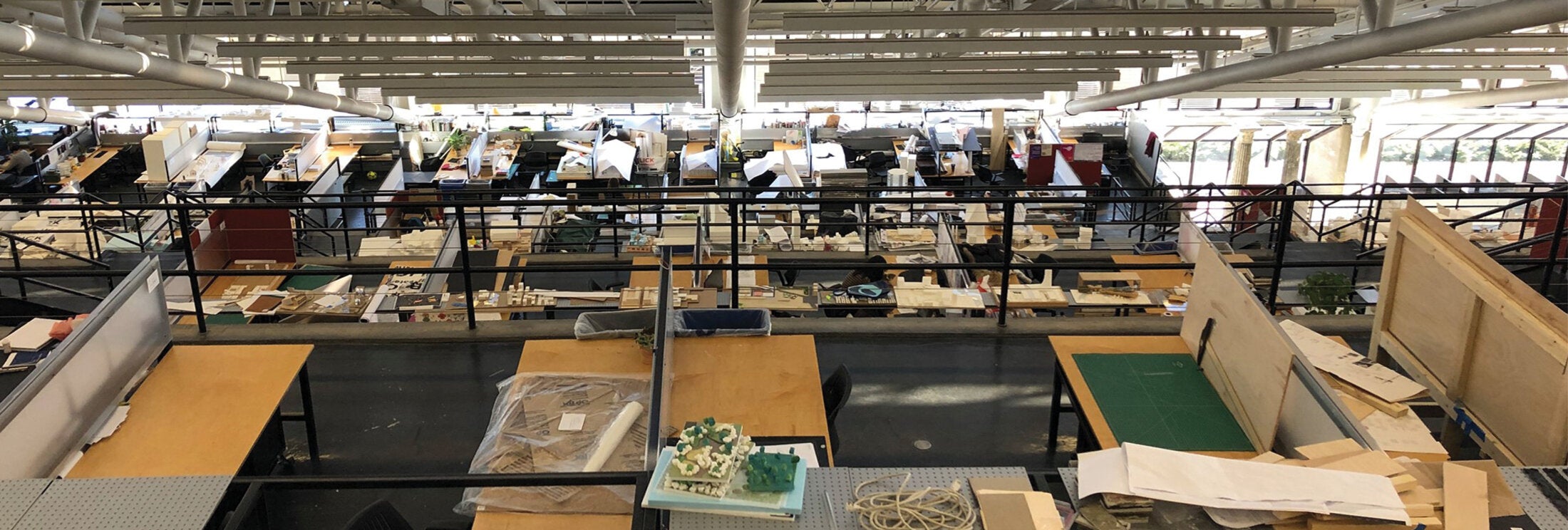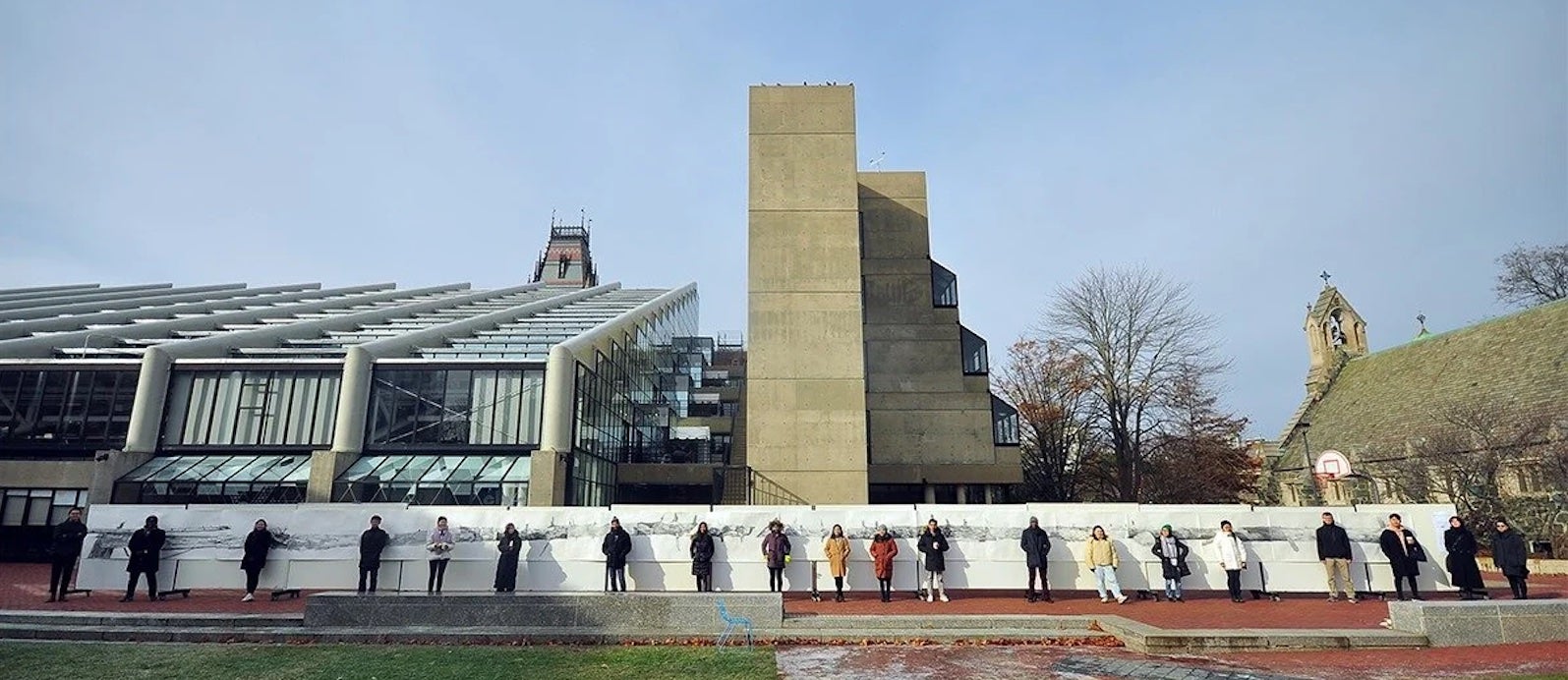When the COVID-19 pandemic reached Harvard, it upended life at the University and around the world in previously unimaginable ways. The necessity of de-densifying campus forced students to transition rapidly to online learning as part of an entirely virtual Harvard experience, faculty to completely rethink how they teach and conduct research, and staff to adjust to shifting job responsibilities and different work environments. Amid considerable uncertainty and unease surrounding these trying circumstances, including financial and technological needs, members of the Harvard community sprang into action to help. The steadfast support of a vast array of donors across Schools enabled the University to continue its teaching and research mission while harnessing its intellectual resources to confront historic challenges.
Enhancing Impact
At the University-wide level, several new current-use funds were established in spring 2020 to respond to the emerging pandemic.
Through the Harvard University COVID-19 Research Fund, donors have been able to help support research and associated activities related to the virus across all Schools as well as defray some of the costs of resuming other important research at the University.
“When the pandemic began, many members of our life sciences community knew they had something to contribute,” explains Provost Alan M. Garber AB ’77, PhD ’82. “They began to design and conduct laboratory experiments, epidemiological and clinical studies, and policy analyses. They sought both to contain the pandemic and to build the sets of tools that would enable us to deal with the fallout from this new virus. The range of research was vast. We have a stunning array of talent in our community, but they could not have done the work without the funding to support it.”
A second University fund, the Harvard University COVID-19 Student and Teaching Fund, was created to assist students experiencing unanticipated or emergency situations caused by the pandemic and to support online learning efforts across the University. These efforts have included developing effective online learning materials and tools; advancing online pedagogy; maximizing the curriculum and student experience; and sharing content, expertise, and knowledge within Harvard and across the globe.
This fund has also allowed faculty to pursue various research projects, often through the lens of the coronavirus crisis. For example, James Stock—Harold Hitchings Burbank Professor of Political Economy in the Faculty of Arts and Sciences and a faculty member at Harvard Kennedy School—was awarded $100,000 from the fund to assemble a team to pursue integrated modeling of the epidemiology and economics of the COVID-19 pandemic in the United States.
Additionally, the University created an Employee Emergency Relief Fund to provide one-time relief grants to staff or faculty confronted with unexpected expenses incurred as a result of the pandemic. Throughout the summer, the Harvard COVID-19 Emergency Relief Fund distributed over $745,000 to more than 760 employees in emergency relief grants. Of the nearly 200 donors to this fund in fiscal year 2020, most were fellow employees.
In April, all three University COVID-19 response funds received an enormous boost from Penny Pritzker AB ’81—former U.S. secretary of commerce and a member of the Harvard Corporation—and her husband, Bryan Traubert. Inspired by Harvard President Lawrence S. Bacow JD ’76, MPP ’76, PhD ’78 and his recovery from COVID-19, Pritzker pledged to support the funds as a vote of confidence in President Bacow’s determination and leadership—and in the work being conducted across the University to stem the tide of this epidemic.
“This terrible pandemic has upended countless lives and livelihoods, and as a result, far too many people have fallen through the holes in our public safety net,” Pritzker explains. “At this time of great need, we are honored to do our part to meet immediate needs—including supporting the most vulnerable in the Harvard community and enabling critical efforts to understand the coronavirus. We are grateful for the leadership of President Bacow and his team during this unprecedented crisis.”
“I am so grateful to Bryan and Penny for their support, which has enabled the University to assist the most vulnerable and sustain its central teaching and research mission during this extraordinary moment in time,” says Bacow. “Penny’s ongoing commitment to the University and her dedication to addressing the pandemic and its impact are truly inspiring—demonstrations, among many, of her continuous and critical support as a true citizen of the Harvard community.”
“At this time of great need, we are honored to do our part to meet immediate needs—including supporting the most vulnerable in the Harvard community and enabling critical efforts to understand the coronavirus.”
Building Opportunities
Each School also searched for ways to support teaching and learning during the rapidly unfolding public health crisis. The Harvard Graduate School of Design (GSD) was one of the first Schools to establish a Student Emergency Fund (SEF) for students faced with unexpected costs for moving, housing, and the technology they would need to learn remotely.
Beyond these immediate needs, however, GSD students faced another challenge. With office closures and rising unemployment levels, traditional summer work and learning opportunities were drying up, prompting the School to find ways to use the emergency funds to help students and recent graduates pursue research and gain professional experience.
“Students have always used summer months to expand on what they’ve learned, by working in offices, partnering with peers on design competitions, traveling to see projects in situ, or advancing research,” explains Sarah M. Whiting, dean of the GSD and Josep Lluís Sert Professor of Architecture. “The pandemic eliminated many of these valuable opportunities, so we felt that it was critical to support our students, including those graduating into this difficult moment.”
Peggy Burns, associate dean for development and alumni relations at the GSD, sent the first email about the fund to alumni and friends of the School in March. The response was extraordinary. Within the first month, donors had contributed $80,000—and by the end of the fiscal year the School had received nearly $700,000.
Through the generosity of donors, as well as matching funds from Dean Whiting’s office, the GSD was able to assist 100 percent of SEF applicants in FY20, more than 300 students and recent graduates—227 of whom received grants to pursue research over the summer on a range of topics.
“This was an opportunity, as a GSD family, to wrap our arms around our current students and take a specific action in the unprecedented moment of a global pandemic,” Burns adds. “SEF highlights that the GSD is very much a community: alumni taking action to help support students, with our own faculty among those who have so generously offered various forms of support.”
SEF grant recipient Nicolás Delgado Alcega MArch ’20 spent much of his last three semesters at the GSD researching cities and towns along the Italian countryside that have experienced depopulation, disinvestment, land erosion, and abandonment. He’s now seeking adaptation strategies for these communities, testing whether various interventions might resolve or address these issues. He also plans to continue his partnership with a local organization in the Italian town of Vallecorsa dedicated to rethinking the future of the area’s historic landscapes, and he hopes to incubate a related startup venture through the Harvard Innovation Labs.
“The research grant will give me the unique opportunity to transition from academia to practice in a more meaningful way in the midst of today’s uncertainty,” explains Delgado Alcega.


